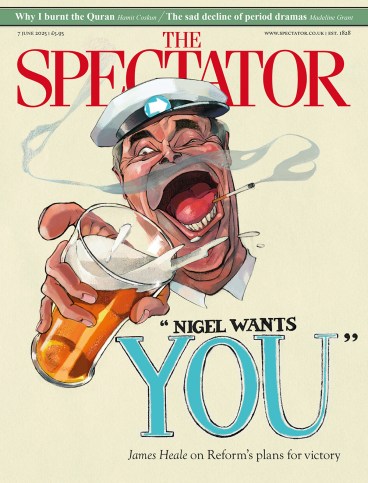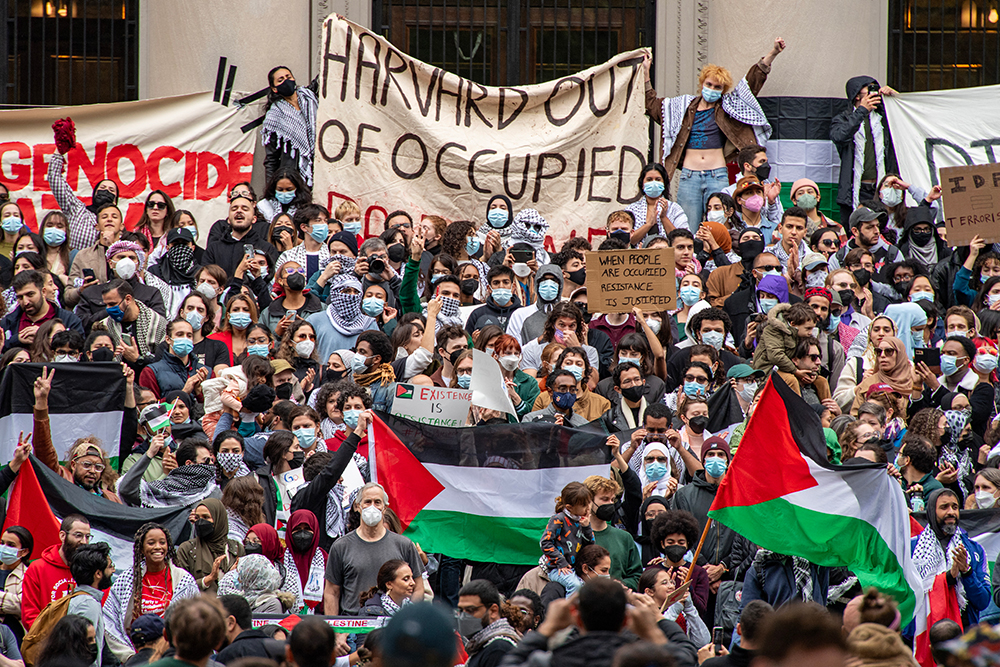
Whatever happened to universities, beacons of the liberal enlightenment? Well, according to both these authors, they are in deep trouble. Cary Nelson is a distinguished literature academic who for six years was president of the American Association of University Professors, set up in 1915 by John Dewey to advance standards of excellence and academic freedom. His book Hate Speech and Academic Freedom: The Anti-Semitic Assault on Basic Principles, published last year, has now been supplemented by this powerful thesis published by the Jewish Quarterly.
Even before the 7 October 2023 Hamas attacks on Israel, he argues, campus anti-Semitism was rife across the West. Following the attacks, 56 per cent of Jewish students in the US said they felt they were in personal danger on campus; 13 per cent of students at large said that the Jews deserved any physical attacks they experienced; and 10 per cent called for their genocide.
Expressing such views anywhere in a democratic country is reprehensible, but the fact that this is openly tolerated at universities is profoundly troubling. ‘Gaza Solidarity Encampments’ originated at New York’s Columbia University in April last year, setting a pattern for 150 similar encampments at US colleges and universities. Anti-Zionist and anti-Semitic slogans blared out from first light, anti-Israel posters and flyers were displayed and the functioning of university life was generally disrupted. Within weeks, 36 similar encampments had been established in the UK, including at Bristol, Cambridge, Leeds, Liverpool, Manchester, Oxford, Warwick and University College, London.
Nelson rightly champions the qualities that have underpinned universities at their best: ‘Truth, reason, argument, inquiry, collegiality and freedom of thought.’ All of these, he says, are in danger of being eviscerated as universities endorse anti-Israel manifestos and academic boycotts, seek out and hire anti-Zionist job candidates, recruit anti-Zionist students, approve anti-Zionist courses, grant tenure to anti-Semitic faculties and invite anti-Semitic speakers to campuses.
What is the solution? The integrity of a university, Nelson says, will only be restored by honouring the ideals above, and by confronting the causes and consequences of anti-Zionism and anti-Semitism. ‘Anti-Zionism is only the latest mutation of the world’s longest hate, anti-Semitism’ and must not be tolerated, said the late Jonathan Sacks, Britain’s former Chief Rabbi, whose official biography I am writing. Clearly hatred and prejudice have no place anywhere in a civilised world, least of all in those very institutions whose raison d’être is the discovery and dissemination of knowledge.
In Bad Education, Matt Goodwin has a similar distressing tale to tell of failure to stand up for the principles of academic excellence and courage. A seriously original and hard-working academic, he rose through the ranks of top universities to become a professor of politics at the University of Kent. Then last year he decided that he’d had enough and was packing in academic life. His book describes everything he believes to be wrong with universities: the rise and rise of administrators; excessive vice chancellor pay; the decline of free speech and debate; unpleasantness towards those who speak out against status quo opinions; the rise of no-platforming and woke academics; the mollycoddling of students; leftwing biases; uncritical attitudes towards China; grade inflation; and much more.
There is something seriously amiss when such a courageous and independent-minded academic as Goodwin feels he no longer belongs in the system. When I was vice chancellor of the University of Buckingham, he was one of many heterodox and challenging thinkers whom I tried to appoint. His book will be dismissed by the left, which is a shame, because there’s much truth in it. For too long, universities in Britain, as in the US, have been dominated by an entitled class of academics whose worldview has become increasingly narrow. Academics, especially in social sciences, live in an echo chamber, denigrating heterodox opinion and talking to each other rather than engaging with the world. We thus have economics departments with little to say about the real world of economics. The same is true of politics, sociology and philosophy departments, while undergraduates emerge from history degrees knowing next to nothing about history.
Universities are indeed in deep trouble in the United States, the UK and beyond. But the liberal values of freedom of thought, the pursuit of truth and excellence, courage and objective research will not be served by assuming that all virtue lies on just one side. Ultimately, both these volumes fall short because they claim the moral high ground exclusively. As the son of a Jewish father who married a Jewish woman, I believe strongly in Israel’s absolute right to exist. But I do not think that everything done by Prime Minister Netanyahu after 7 October 2023 has been moral, nor in tune with the letter and spirit of the Jewish faith.
The anti-woke right is guilty of talking too much to itself and of being too willing to denigrate British institutions, including the BBC, the civil service and the arts world. It has been too busy fighting a largely pointless culture war to mitigate the downsides of Brexit and its own failure after 14 years in power to address effectively many of the wrongs it identifies – including the problems in universities.







Comments